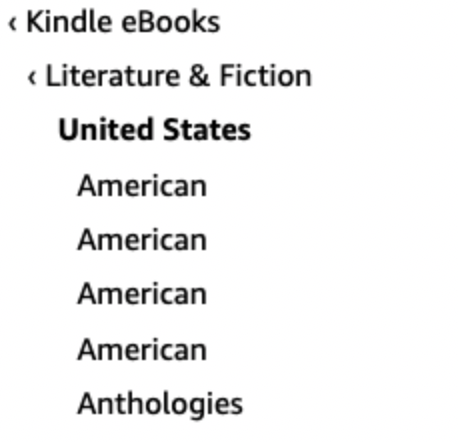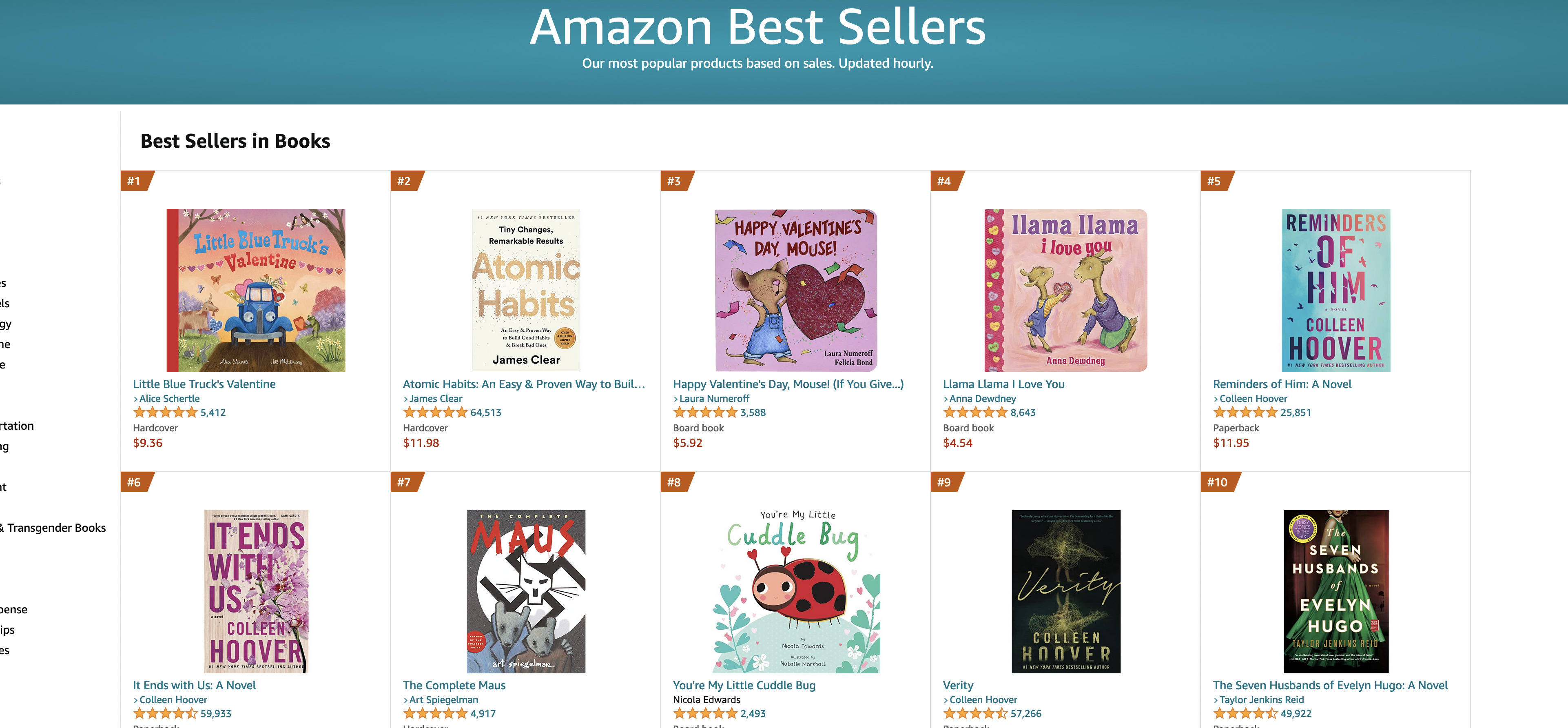There’s something going on with ranking on Amazon again, and there’s been lots of speculation this week without much real evidence being posted on various blogs for authors. So we’ve done some real-life tests on ranking, and here’s a set of live findings so far on real book promotions, offered without too much speculation.
FINDINGS JAN 17 2022 – FEB 06 2022
Real data conclusions from Amazon promotions run in this period of various genres.
The main finding, and not always applicable, is that there is a general lag in ranking of about 18 – 24 hours right now on ranking showing up. Your ranking and sales are not lost, just dragging. This is an issue with whatever technical fixes Amazon is making, and will hopefully go away. Amazon will not admit to any technical issues, but it’s clear there are. See next points.
Subcategories are missing and changing arbitrarily. For example, on Monday, subcategories were reading with duplicates in them for upwards of an hour. Authors have reported the same issues days before in other categories too:

Subcategory glitches Feb 7
Amazon has added an alert to their contact page for changing categories that now says that categories must be relevant to your book. After looking into this, it doesn’t seem to be an algorithm change but a policy enforcement, whereby books that don’t choose relevant categories will not be placed in them without notice. This seems to go double for new releases. This will hit romance authors the hardest, who, let’s admit it, in some cases have been gaming the category system for a while now, showing up in medical text book and engineering categories and swamping them, for example.

Amazon message added regarding category adds
Here are some real promotion results over the weeks:
- 205 books sold on a book with hundreds of sales and reviews in it history over 2 years. Lag of 18 hours with zero change in ranking in this time. Then suddenly, ranking the book at #1. Genre was Literary fiction, coming of age. No other books by the author
- 195 books sold on a new release. Ranking of #5000 overall was reached, much lower than expected (should have been in the high #1000s). The #1 spot required 104 sales approximately in chosen subcategory, but this book never rose past #3. Non-fiction business book with no other books by the author
- A book with some verified reviews and a sales promotion the week before, sold 52 books. Ranking did not move for 48 hours, then ranked much lower than expected. A change of category to a niche at this time put the book at a solid #4, which was much higher than expected when another 53 books were sold on a second promotion. Science fiction with other books by the author
- A book with 3 years of history, reviews and sales, sold over 200 books on promotion, and got to #1 easily with no lag at all. Science fiction with other books by the author
- A book with no sales history but with pre-release of about 100 sales ran a promo and got 25 reviews and 201 sales, but ranking did not change for 48 hours. The book made #1. The author had many other books. Genre was romance
CONCLUSIONS
This data seems to confirm that new releases/authors are having the most issues, but this is maybe because of changes/fixes to the algorithm where it is learning from new data.
Amazon has said to some authors that it’s trying to weed out fake sales and bots, and that’s great. But only when it doesn’t penalize promotions as well in the process. Amazon’s algorithm uses machine learning, that is, it learns as it takes on new data, so it’s going to take time to refine this distinction. This may be why we’re seeing these issues.
Ranking is currently being earned differently for books that sold a lot over 1-2 days after selling zero. This seems to support the theory that Amazon might now reward sales over time. If your book has no sales history, it may not reach #1 even when you have enough sales to do so. It seems books with a sales history are not seeing this issue in the same way, although they are suffering the lag.
New releases should try to organize promotions so that sales/reviews are trickling in first before storming in with a big promo. If you have thought about going for one of our big promos, go for reviews-only or a smaller sales package first. Sales over time may be awarded more solidly than quick, big spurts of sales. Unfair to mailing list promos, ad campaigns, book tours, and book clubs, but there it is.
Try to stay in your lane when it comes to categories. It seems one of the new ideas is to get books out of inappropriate categories when they are flooding best seller lists across the board.
The best way to rank right now is to add very niche but as relevant as possible subcategories, i.e. book categories when #1 is reachable with #5000 overall rank or more, and pair these with some more broad, preferred categories in place that need more ranking to reach higher. This will increase your chances of steadily climbing rank over time. Adding something very subcategory in a very nerdy niche with a more general one-down level subcategory may see you do better than aiming big and broad immediately.
Who knows what happens to your sales rank if your category temporarily disappears? Can we be certain Amazon will count that sale towards a category that you had chosen but that did not exist at the time of the sale? This again might cause lags in ranking.
Remember…
- Pre-orders will not show up in ranking until at least 8-72 hours later in any case. This means you should bear this in mind during a campaign and not freak out when you seem to have lost all your oomph on release
- Your book needs to sell to be seen in categories. If a category doesn’t show up, it may be your sales numbers are not igniting that category yet, with a lag of anything from 18 hours right now
- Sales will take at least 8 hours to show in your KDP dashboard
Does rank really matter?
Yes.
If you want your book to be seen in searches on Amazon, you need to rank high to get visible on the first page of results, or else you will never show up when readers search for your sort of book on Amazon
There is a school of thought that you can use really niche keywords and get seen high in results this way. But that is a very defeatist attitude. If only one person searches with your very unusual keyword a month, then you might get a sale, but that’s the only sale you’ll get all month
Remove your author name and book title from this very important section of your KDP dashboard if added as keywords, as nobody will search this way. They either know about your book and will click to it, or will search for books like it
Aim for generic keywords that Amazon has in its catalogue, such as “thriller, africa, coming of age”
Facebook and Amazon ads may help sales. But you need to choose audiences carefully and spend upwards of $300 at the moment to see a dent
Do reviews really matter?
Yes.
While verified customer reviews won’t help you rank with the algorithm directly (only sales and recent sales history do this, whatever anyone says), they do show your book is a product worth reading, and proves that it sells. This means the knock-on effect is that browsing readers will buy your book rather than passing it over for another title.
You can gain verified customer reviews by using mailer services like BookBub and our service here. The difference between ours and BookBub’s is that we meet minimum audience targets, and we don’t vet the book before accepting it for promotion like BookBub does.
Editorial reviews like the ones we offer at SPR show that your book has been read by a professional reviewer and appraised. Using these on your book page will also help you look like a serious contender when readers consider buying your book.
Will Amazon ranking settle down?
Yes.
It always does. Old salts like us at SPR have seen this weird stuff about seven times in as many years. There’s always freakout from indie author voxpops screaming a war on indies. There’s always the clickbait about Amazon throttling authors. None of it has any real basis in fact, and is more than likely down to the algorithm being fixed up for whatever reason, probably with an update in subcategories due, seeing as we’re seeing those flicker in and out here and there.
Because let’s face it, Amazon is huge, and Kindle indies are such a small part of a huge enterprise that it’s pretty unlikely when you get off the soap box and think on it that Jeff Bezos is even looking at indie ranking when he’s more concerned with his spaceships and blowing up the moon or whatever.
It will settle. It may be slightly different. And like the machine, we will learn how to deal with it.
Get an Editorial Review | Get Amazon Sales & Reviews | Get Edited | Get Beta Readers | Enter the SPR Book Awards | Other Marketing Services























My ranking number has been removed, since at least 2022. Other reviewers still have theirs. My profile now provides an “impact” number. I can’t seem to find anything online about these changes. Who knows maybe my account has been ‘ghosted’, and only I can see my own reviews. smh I do purchase a pile of books, and of course other goods.